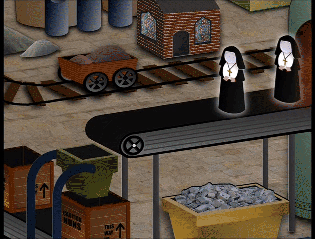Chapter XVIII
OF JACOB'S VISIT TO THE ADJUDICATOR AND HIS
FRUITLESS APPEAL FOR ASSISTANCE
The not insubstantial figure of Mr Rudolph Snickerty was as familiar a landmark as the spire of St Jasper's to those various persons within the orbits of the little house at the corner of Bimini Square. The bootblacks and the broadsheet vendors picked out his silhouette, moving through the dawn mists, with easy familiarity, as he tumbled from his street door into the waiting cab at precisely just after seven each morning, without fail. And the lamplighters and road sweepers marked his return with equal dependability, as the cold vapours began to congregate in dark corners and beneath sagging eaves, at very nearly exactly just before eight each evening. Each of these public appearances, was met with polite expressions of greeting from all those who encountered Mr Snickerty, and such felicitations were volleyed by that latter gentlemen in the same respectful and formal manner as they were served up, as was only to be expected of such an accomplished and esteemed authority. It would hardly have been proper to err towards the casual in one's relations with Mr Rudolph Snickerty, known to all as 'The Adjudicator' in connexion with his official position relating to the administration of relief to the poor and needy. Many there were who, being without the means to support themselves, were grateful for his judgements when they fell in their favour, and no less respectful when the decision went otherwise.
The weight of this responsibility hung heavy around Mr Snickerty's shoulders tonight, as he climbed down from his cabriolet with the stately ponderousness expected of a man of his circumference. If, of late, his movements had become more laboured or his gait a touch more sluggish, then the cause was surely, in equal measure, as much the constant burden of his professional obligations as the sumptuous lunches which he forced himself to endure, in order to maintain both his strength and his spirits. And who would deny him sustenance, either of body or mind? Being both the first and final arbiter of whom should receive financial assistance from the state, was a responsibility that was not without its stresses and strains, and Mr Rudolph Snickerty's contribution to society had not escaped recognition. Indeed, popular opinion held that it would only be a matter of time before that Mr Rudolph became Sir Rudolph, and in consequence it was entirely appropriate that a respectful distance should traditionally separate that gentleman from his neighbours, both socially and, secretly to the great relief of all parties, physically. It is generally known that all men of greatness should, whenever possible, be kept at arm's length.
This evening, so far proving to be much as any other, Mr Snickerty drew his fob from his waistcoat pocket and noted, with some satisfaction, that it was precisely just about nearly eight. Snapping the watch lid shut, he bandied a few insignificant pleasantries with a correspondingly inconsequential neighbour, and went inside; thence, pausing briefly to catch his breath before the ascent, he proceeded up the stairs to his apartments on the first floor.
While there was little doubt that this house had seen better days, it would be impolitic to suggest that these dark and wormholed stairs had ever creaked beneath the boots of a more commendable gentleman than he who now ascended, grunting and wheezing as he did so. Certainly, none worthier numbered amongst its present inhabitants, all of whom were cognizant of the fact that they lived in the shadow of an astonishing man.
Mr Snickerty halted mid-step and clutched the railing. "Pilfer!" he called, upstairs. He paused again, briefly winded by the effort of exposition. "Mrs Pilfer! Supper on the table if you will." And the command being issued, he continued to climb. This clarion call was part of his familiar routine, as his neighbours well understood. Miss Mimsy, the little seamstress who occupied the ground floor parlour, knew that every evening as he returned from his offices, Mr Snickerty would call for his supper, like the Merry Old King Cole of the nursery rhyme. And Mr Blotter, the unseasoned young clerk who availed himself of the attic, knew that at that signal, Mrs Pilfer, the goodly gentleman's cook, housekeeper and much more besides, would quickly wash down the brandy and water that she was nursing, and rush to charge Mr Snickerty's table with such vittles as are required by a gentleman of import, when he returns home from a busy day in his chambers.
On occasion, Mr Snickerty might append other trifles of conversation to his instruction, regaling Mrs Pilfer, and thus the other occupants of the building, with details of his day, the state of his health, or some scandal or other with which he had become acquainted. This evening he started upon an enquiry, but got as far as "And has that -" before thinking better of it and reverting to silence. What he had intended to say was, "And has that fool Pinscher arrived yet?" but being a gentleman of some foresight, he stopped himself when it occurred to him that the expected person may indeed be present, and may not express any great delight in being referred to as a fool.
It was a wise precaution, for Mr Snickerty gained his apartment to find that Mrs Pilfer had already been busy. A vigorous fire crackled in the grate, the table was submerged beneath a satisfying quantity of cold meats and cheeses, and the aforesaid gentleman, Mr Martin Pinscher, had his legs firmly beneath it, sucking the meat off a chicken drumstick.
"Ah Snickerty, old fellow!" said Mr Pinscher with such evident surprise, that it did not occur to him to stop eating as he spoke. "Excellent bird, this," he continued, scattering morsels of masticated meat across the table in his haste to sing its praises. Anyone meeting Mr Pinscher for the first time might forgive him this discourtesy, since the fellow looked as thin and emaciated as the chicken bone he waved so enthusiastically in the air. What they would not be aware of, is that this appearance was Mr Pinscher's natural state. No matter how many fowl he devoured, bones and all - and it had amounted to a fair few during his lifetime - Mr Pinscher retained the appearance of a frail and listless marionette, that has been abandoned by its master. His long, splinter-like limbs never appeared to develop any meat on them, despite the dizzying number of pies and pastries that he consumed. His pale, sunken cheeks remained concave, even as he was filling them with divers biscuits and puddings. It was a wonder that Mr Pinscher ever found the strength to lift food to his mouth, but lift it he did and in quantities that would cripple another man, and bankrupt Mr Pinscher if ever he was required to pay for it himself.
He was momentarily distracted by the arrival of a large pie, borne aloft by Mrs Pilfer, who evidently feared that the banquet was not extensive enough already. Mrs Pilfer was not the sturdiest of housekeepers. Certainly, she was not nearly as substantial as the pasty that she endeavoured to transport, and as a result her progress towards the table was somewhat faltering and uncertain. This, combined with her wayward limbs, a bearing that was naturally off-centre and a shakiness arising from an afternoon spent making an inventory of her master's liquor cabinet, gave rise to grave doubts that the plate would ever arrive at the table replete with its original contents. If Mr Pinscher was a betting man - and this history will go some distance towards establishing that he was - he would have laid a handsome wager on the pie coming to grief, upended on the floor.
As it turned out, he would have lost his stake, since Mrs Pilfer managed to land the pie safely on an uncluttered corner of the table. This achievement came not only as a surprise to Mr Pinscher, but also to one other, for accompanying both pie and Pilfer into the room, and gazing at the former with a lustiness almost equal to Pinscher's, was a plump and sluggish brown and white terrier. The disappointment on its chubby, tufted face at Mrs Pilfer's successful delivery of the foodstuff was very nearly heart-breaking, and it whimpered softly once it became apparent that the pie was not destined for the floor. Not that the animal would have suffered greatly by forgoing the occasional meal. Lacking a son and heir, Mr Snickerty had seen fit to lavish all his attention and favour on his pet and, such favour being mostly dietary, the animal's bowed legs and sagging belly endowed it with more than a little resemblance to its owner.
"Settle down, Hermes," Mr Snickerty told the dog absently, falsely labouring under the impression that the creature was all of a dither at his return. In fact, the dog showed barely any regard for its master's presence, and as Mrs Pilfer swept from the room, a good deal more nimbly now that she was unburdened, and returned to the kitchen in search of something to settle her nerves, the dog, without taking its eyes off the heaving table, lay down to patiently wait its turn.
"I hope you're feeling lucky tonight, Snickerty," Mr Pinscher declared, reluctantly setting the drumstick aside so that he could better concentrate on the pie, and ignoring a low and menacing growl from the dog. "I aim to win back every penny I lost last week, and twice more besides."
Mr Snickerty sighed. His weekly games of Shove-a-Duck or Three Card Spaniard were a tradition that had been established many years ago. At first these evenings had proved a pleasant diversion, then a routine, and finally an ordeal that he nevertheless attempted to endure in the best humour. Whatever pleasure he gained was moderated by a growing undercurrent of impatience, and whatever monies he won, when he won, was more than offset by the devastating impact that Mr Pinscher invariably had upon his larder. Nevertheless, he made the effort because he knew how happy it made Mr Pinscher to spend one evening in each week away from his wife and family.
"And how is Mrs Pinscher?" Snickerty asked, too well versed in the social niceties to omit enquiring after the good lady's health, even if his friend would rather she wasn't recalled to mind at this point.
"She is well," Pinscher replied, putting a brave face on it. "Leastways, she was trilling to herself like a linnet when I left her this morning, so I assumed she was in fine spirits."
"And the children?" Mr Snickerty asked.
"Full of devilment, as children often are," Mr Pinscher replied. "They want for nothing, save perhaps a little discipline, but that I leave to their mother. I confess I don't have the energy to keep abreast of them." Mr Pinscher shook his head, and for a moment he looked genuinely crestfallen. "Listen Snickerty, you don't know how lucky you are. I envy you your bachelorhood."
Mr Snickerty drew his breath sharply over his teeth. "Surely not?" he responded, though with little in the way of verisimilitude. Much to Mr Pinscher's dismay, he reached out for the largest and plumpest of the drumsticks, settled into an elbow chair, and embarked on a series of exploratory nibbles. "Here speaks a man with a devoted wife," he said, jabbing the drumstick into the air to punctuate his speech, "an adoring family, and a position which affords him the respect of the district, invites the jealousy of his inferiors and provides for a most comfortable mode of living indeed. And what has such a man to envy in me? These dusty and dismal rooms? Mrs Pilfer, perhaps? Sir, say the word and you may have her. Or perhaps you crave the companionship of this flea-bitten hound here?"
To emphasise the question, Mr Snickety tossed the chicken bone to the dog, having decided, after barely denting the item, that he wasn't really hungry at all. Mr Pinscher could not disguise his dismay, as the animal proceeded to tear it apart.
"No sir," Mr Snickerty continued, too preoccupied to mark the tear that sprang to his friend's eye. "It is I who should envy you."
Mr Pinscher could only nod. Everything Mr Snickerty said was true: his wife, his family, and most especially his position. For although Mr Pinscher could never hope to be held in the same reverence as his celebrated acquaintance, his role as gatherer of the council's taxes afforded him equal power. If Mr Snickerty was known to all as 'The Adjudicator', then Mr Pinscher enjoyed equal notoriety as 'The Collector' and his appearance at the door in pursuit of arrears invariably guaranteed a satisfying quantum of deference.
Nevertheless, Mr Pinscher could not allow the notion that he lived a life of domestic and professional bliss to go entirely unchallenged. "Yes, yes," he said, as he picked up a boiled egg and absently rolled it around his palm. "You are right, of course, about all those things. My wife is devoted, though she often chooses to express this as disapproval of some of my more innocent habits. And my children idolise me, although they occasionally allow their idolatry to be overshadowed by their adoration of their mother. And my position does indeed allow me to enjoy some measure of respect, although it is frequently not without its trials." Warming to his subject, he abandoned the egg on a side plate and clapped his hands. "By way of example, today I visited a most irresponsible citizen in Cardew Street." His own words caused him a momentary shiver, and his hand went to his forehead. "Cardew Street!" he cried. "If ever there was a more loathsome cauldron of humankind than that which you are unlucky to find bubbling away in Cardew Street, then I have yet to encounter it. And I have no wish to ever encounter it, for the people of Cardew Street give me more than my fill of trouble as it is. No public responsibility, that's the trouble. They're happy to enjoy all the perks and the amenities that the borough council, in its munificence, has the good grace to supply, but will they pay their taxes? No sir, they will not."
Mr Snickerty sorrowfully shook his head. Suddenly overcome with thirst, he searched round for refreshment, and upon finding none, commanded Mrs Pilfer to bring in the port. Then, seeing that his friend was all wind and thunder, and that the storm was not about to blow itself out, he permitted him to proceed.
"This fellow I called upon today was hewn of the same stuff," The Collector continued. "Hadn't paid a penny this last six months, and it came very plain to me during the course of our talk that he had no intention of doing so. He spun me stories, sir. Told me fanciful tales of having no money, no work and no prospects. He took off his shoe, showed me the leather all worn through and tattered. Then he took me to the kitchen and showed me the stove, cold and lifeless and unused - he had no fuel, he said, to fire it; and no food to cook upon it if he had. And these stories, are what he offered me in lieu of money. Consider what we might do with tales of worn out shoes and empty pans, I told him, but my words had little effect. How is the borough to provide for him?"
"It is indeed a strain on the public purse," Mr Snickerty agreed. "It is a marvel that the council is generous enough to do all these things for this fellow."
"Generosity is perhaps our greatest fault when it comes to dealing with such unsociable attitudes," Mr Pinscher replied. "Perhaps tomorrow the bailiff may have more success where I had none, but I think not. The stories are the same wherever I go."
"I little doubt it, for I am well acquainted with those same fictions," Mr Snickerty grumbled. He leaned back into his chair, head slumped in a posture that was designed to take some of the weight off his chins. "One hears every day the same tawdry tales from people who claim they are unable to feed and clothe themselves. They turn up at our office daily, plump and well-shod and making demands on our charity."
As he spoke, Mrs Pilfer tottered in with a tarnished silver tray bearing the port, already uncorked, and two mismatched goblets. She began making her way to the table, red faced and glassy eyed, when Mr Snickerty diverted her with a gesture and bid her set the tray down on the occasional table beside his chair. This done, she moved off in the same manner as she arrived, managing to find the doorway on only the third attempt, and finally exited the room.
"Why just last week," Mr Snickerty began, but was interrupted by a crash and a clatter from the kitchen. He cocked an ear and listened, and taking the low moan that issued from that quarter to be a signal that his housekeeper was alive and well, he began again. "Why, just last week," he said, picking up the port and registering a brief stutter of surprise at its lack of weight. He upended it into his goblet, but it issued barely enough liquid to wet the bottom of the glass. Mumbling to himself, he set it down and, determined to ignore the soft whimpering that now drifted from the kitchen, he began once more.
"Last week," he said, folding his hands across his belly, like a proud father embracing his child, "we received a visit from a most extraordinary woman, who rode into town on a pig. Twenty miles, all told, the animal had carried her, and no doubt she had been cheered on her way by many low and disreputable characters along the route. She claimed to be lame, which infirmity was the sole cause of her inability to find employment. This pig, so she explained, was the only means of transport available to her."
"Extraordinary!" exclaimed Mr Pinscher, although it was not certain whether his interest was roused by this uncommon mode of conveyance, or by the vague suggestion of sausages. "A pig, you say? The ingenuity of these people! She wanted assistance, I take it?"
"She wanted money, Mr Pinscher, let us not be coy," said Mr Snickerty. "Pounds, shillings and pence were what she was after, and by this ridiculous stunt, pounds, shillings and pence is what she hoped to get."
"I take it that you disappointed her?" the collector asked.
"Unquestionably," returned the adjudicator. "The Department of Working Peoples is, as I am sure you know, the very jewel in the coronet of our modern state. We pride ourselves that through the provision of funds for those individuals who find themselves, through illness or injury, unable to work, no man may suffer to go to his bed feeling hungry and cold. The dark days of poverty and despair are long behind us now that the state has made this contract with the people to ensure the welfare of all, from its richest and most noble gentry, to the humblest and most vulnerable infant. Now, we can't very well maintain such a commitment by handing out money to all and sundry. Why, it is plain to see that the whole scheme would come crashing down around our ears if we engaged in such foolhardy benevolence. And so I told this woman, pig or no pig, if we were to - "
Mr Snickerty was interrupted by a sharp rap at the door, which occasioned sufficient surprise to very nearly cause him to jump from his chair. He wasn't expecting anyone at this hour. He looked to Mr Pinscher and was about to ask him if he anticipated a visit, when he realised that this might seem a foolish question to ask of a guest. A second knock brought him to his senses, and he reasoned that a knock on a person's door naturally demanded an answer. He called for Mrs Pincher, but the only sounds now coming from the kitchen were heavy snoring, and so he rose and unfastened the door himself.
"Mr Snickerty?" said the silhouette framed in the doorway. The landing was dark, and Mr Snickerty could not make out the man's features, but his outline was ragged, his posture was stooped and he had about him the odour of old leather and horses.
"The same," acknowledged Mr Snickerty, managing to imbue those meagre words with a palpable measure of impatience.
The visitor moved forward slightly so that the light from within fell across his face. His eyes were dark and hooded. Hair hung limply around his forehead and the skin of his cheeks and chin was pock-marked and grey. Yet despite this striking appearance his demeanour remained respectful, and his voice was shot through with soft humility. "Mr Snickerty, I am wery sorry to intrude upon you in private, sir," he said, keeping his voice low. "I wundered if I could have a word. I know the hour is late - so it is for me, sir, perhaps more than you can know, but it cannot wait."
Mr Snickerty writhed irritably, but the fellow appeared in earnest, and the adjudicator reasoned that it would be more expedient to hear him out, than turn him away. He grunted, and beckoned him in, and returned to his elbow chair and his empty goblet. The visitor nodded a polite acknowledgement upon seeing Mr Pinscher, and remained standing, restlessly fiddling with the tattered hem of his threadbare coat, as he waited his turn to speak. But before he could, Mr Pinscher startled him with a sudden exclamation. "I know this man!" he declared, as he paused with a hunk of beef that he had speared with his fork, mid-way to his mouth. He set the implement down on the side of his plate. "Well, well! Another one of those wretched citizens of Cardew Street who does not feel the need to pay his council taxes. I've had occasion to visit the fellow more than once. Mr Gates, is it not?"
"Wanting, sir," the visitor corrected him. "The name is Jacob Wanting, Mr Pinscher, sir, and Blacktop Road is where you have visited me in my 'umble home. You remember, I'm sure, what I told you that day, and never did I ever speak a truer word, or bless me, let the shade of my dear old departed mother strike me down. I told you I had paid my taxes for many years, sir, before my present misfortunes were visited upon me, since when I have been unable."
"Ha!" Mr Pinscher cried. "And yet, despite your lack of contributions, you nevertheless remain capable of enjoying the benefits that we provide: your streets are illuminated, your roads are mended, your refuse is hauled away and there is even a constable to keep you safe while you and your family lie abed. What do you say to that, Mr Wanting? Are you not looked after?
"I'm sure I must be, sir, I don't doubt," replied Jacob Wanting. "Between yourself and Mr Snickerty here, and my old missus and my blessed departed mother, I must be wery well looked after indeed. Although I should say that Blacktop Road is a dark and dirty neighbourhood, and the constables, they never come nowhere near it. But I know that the borough has provided those splendid new council chambers, for us all, and by all accounts it is a most magnificent building, although I myself am not allowed admittance, sir. And I have heard that a 'andsome sum has been lavished on the mayor's new coach. A very impressive carriage it is too, because I have watched it from a distance, and it does me good to know that his worshipfulness and his fine friends can travel in such comfort and style, sir."
Mr Pinscher did not reply. He merely grunted and picked up his fork to continue his assault on the table. Jacob Wanting turned to address the adjudicator. "And Mr Snickerty, sir, we have also met, not one week ago when I came to your offices to ask for an allowance, though I didn't never ask for any charity before, this being the first time and out of absolute necessity."
Mr Snickerty shrugged, and failed to meet the visitor's eye. "I see so many people," he said. "I cannot be expected to remember every face."
"Of course, sir, of course," Jacob Wanting said. He shuffled restlessly. "Only, on that occasion, my request was turned down, sir."
Mr Snickerty waved a hand. "So many are," he said. "Even our generosity can only stretch to the most deserving of cases."
"The most deserving indeed, Mr Snickerty, sir, and I have no doubt that those most deserving folk are so wery thankful for your kindness," said Jacob Wanting, and hesitated before he spoke next. "And for the others," he said slowly. "Them that don't deserve - well, I'm sure that they are no less grateful that you should have taken the time to make a judgement. But I wonder whether there might be some sitivation where you might want to..."
And here words failed Jacob Wanting. Mr Snickerty looked up and briefly caught his eye, before the visitor turned his attention to the floor. "Well?" Mr Snickerty demanded, leaning forward in his chair. "You will do me a great disservice if you disrupt me at this hour merely to examine my floorboards and leave me guessing as to the nature of your business. Situations where I might want to what?"
"To reconsider, Mr Snickerty, sir," Jacob Wanting said quietly.
"Reconsider!" Mr Snickerty said. "Why I've never heard of such a thing." Mr Snickerty glanced to his friend, the collector. "Reconsider, he says! I am the adjudicator! Mr Wanting, when I judge something to be so, it remains so, and requires no reconsideration. It is your own case that you wish me to reconsider, I take it?" Mr Snickerty calmed down a little and leaned back in his chair, and then somewhat surprisingly said: "Very well, I will hear your story, and I shall pronounce judgement. But I warn you, by this act I will demonstrate two things: firstly that I am as charitable with my time as I am with the departments funds; and secondly, that my decisions never - never, I tell you - necessitate revision."
Jacob Wanting nodded in gratitude. "I won't take much of your time, Mr Snickerty, sir," he said. "If you'll allow me to acquaint you with a little of my history. I have worked all my life, sir, since I was a boy. Lately I have earned a 'umble but honest wage in the stables of some rich and respectable gentlemen of this city. I have paid my taxes to the council, when I could." Here he politely acknowledged Mr Pinscher. "And I have discharged my duties to the crown. No man could ever claim that I shirked my responsibilities to my family or to my country. Neither have I ever given my employers cause for complaint, so strike me down if I utter a false word. And during my working years, Mr Snickerty, sir, if I did not earn myself a fortune, at least I earned myself a reputation as a trustworthy and dependable fellow. "
"My, how the wretch goes on!" remarked Mr Pinscher, idly fingering a crust.
"Indeed he does," Mr Snickerty agreed, making great theatre of stifling a yawn. He addressed Jacob sharply: "You have done all that is expected of you, and nothing more besides. In this there is nothing so remarkable as to explain you waiting upon me now. Come sir; explain the purpose of your visit."
"My purpose is this, sirs," Jacob continued, though he gave no indication that he would be hurried. "You gentlemen would agree, I'm sure, that a man cannot live on his reputation alone. He must have bread and water, and a roof above his head, and clothes for himself and his family. Reputation cannot give a man such things. Hard toil can, but ever since I suffered a horse's kick in the service of my master, I can work no more. The blow from that wayward mare did not just break my back, it crushed my spirit and any hope I ever had of earning another penny in my chosen trade."
Mr Pinscher chuckled softly to himself, and Jacob was sufficiently disturbed by this unexpected reaction, that he momentarily abandoned etiquette, and asked him what he found so funny. "I believe I comprehend exactly why that poor nag delivered you such a knock," the collector replied with a sneer. "I fear the animal must have been driven to distraction by your meandering monologues."
A flicker of a smile played around Mr Snickerty's lips, but he resisted the temptation of an open display of mirth. "Nevertheless," the adjudicator said. "This fellow's story is a familiar one, and his visit is now recalled to me. Correct me if I am wrong, Mr Wanting, but am I mistaken in remembering that your assessment was interrupted?"
"That's right, Mr Snickerty, sir," said Jacob. "The pain overtook me, as it often does nowadays, and I couldn't finish the tests."
"We subject applicants to a number of simple tests," Mr Snickerty explained, in response to Mr Pinscher's quizzical look. "We make them stand, make them sit, ask them to pick up items from the floor, and we award points for each task they cannot perform. By such means we can establish whether the applicant really is as inconvenienced as he claims to be."
"Capital!" Mr Pinscher said approvingly. "Make sure the fellows are not playing you for a fool and taking advantage of your charity, eh? Very wise." He gestured lazily at Jacob. "And this chap got found out, did he? Is that it?"
"I was unable to finish the tests, Mr Pinscher, sir," said Jacob, "on account of the pain that took a hold of my back, and shot down through my legs, and made it so that I couldn't stand, nor sit, nor do any of the things that Mr Snickerty would have me do. And that is why I would like you to reconsider my case, Mr Snickerty sir, if you would see your way to do so."
Mr Snickerty made a steeple of his fingers and pressed them thoughtfully to his lips. Then he tutted and gently shook his head. "Well, I really don't see that there is any cause," he pronounced. "The situation, as it presents itself, is very clear. Everyone who is awarded an allowance must score at least fifteen points in the assessment. You did not. There really is no need for re-evaluation."
"But Mr Snickerty, sir," Jacob protested. "I didn't take the tests."
Mr Snickerty grew irritable. "And therefore you scored nought," he snapped testily. "Really, I fail to see why you need to labour this point. It is surely apparent to even the most muddle-headed of fellows that a failure to take the test will result in a failure to be awarded the allowance?"
"Yes, but..." Jacob Wanting haltingly continued. Circumstances were such that he had no option but to persevere, and no hope unless he was able to persuade the adjudicator to reverse his decision. "Mr Snickerty, sir, I don't like to have to beleaguer you like this, but there is no food on my table, and I have no means to earn it. The missus, she says I should come here and ask if you will think again, and she's right, is my missus, because if you won't help, then we will starve."
"Listen, you ill-mannered windbag," Mr Pinscher abruptly interceded, having found that this visitor's words were interfering with his digestion, at a time when his digestive system had more than enough to contend with already. "Mr Snickerty here has had the good manners to consider your plea." That eminent gentleman shot his friend a look which seemed to suggest that he was more than equal to dealing with this increasingly annoying intrusion himself, but Mr Pinscher failed to read the meaning of the expression, and carried on regardless. "He has decided to stand by his original decision," the collector continued. "It is not for you to question his verdict, nor to encroach upon his time a moment longer."
Jacob Wanting stood his ground, with the stubborn resignation of a man with no other options left open to him. "But, gentlemen, is it fair?" he implored. "I ask you now, here am I a man incapable of earning a farthing for himself by the sweat of his own brow, and I am denied help because I am too ill to even to undertake the tests. This cannot be right."
Mr Snickerty got to his feet. "My judgement stands, just as I said it would," he said. "It is unnatural that you should question it. Society determines that we live by certain rules, and that where judgements need to be made, decisions are taken only by those persons possessed of the impeccable good sense to take them. By these rules, and by my judgement, you do not qualify for assistance, and therefore assistance you shall not have. That is my final word, sir."
By Mr Snickerty's lofty demeanour, Jacob Wanting knew that further argument would be fruitless, so he thanked the gentlemen that they had at least heard him out, and then he left quietly. Mr Snickerty did not feel in the best of humours, as he fastened the door behind him. His friend, Mr Pinscher, was more animated as he remarked upon the nerve of their visitor. But Mr Snickerty dismissed his comments. Such encounters were commonplace in his business, he said. "Though very rarely do they follow me home," he added as he returned to the table and began to load up a plate with a variety of meats and cheeses.
"Not even when they come riding swine?" Mr Pinscher asked impishly, recalling their earlier conversation, and causing Mr Snickerty to laugh.
"No," the adjudicator replied, returning to his chair with his plate fully laden. "No, not even then."
"Curious though," said the collector, "that this woman you spoke of should arrive at your chambers, claiming to be incapable of feeding herself. Now that I have given the matter some thought, it occurs to me that all the while she is pleading poverty, she is in possession of an animal that could grace her table for the best part of a month."
Mr Snickerty agreed. "I was sensible of just such a possibility," he said. "But when I raised the point, the woman protested that she could not eat her only means of transport, and so there the matter rested. Or at least, so I thought, for several days later I learned that the pig had expired whilst it was carrying her home. I am optimistic that, unless she can acquire another sturdy hog to carry her to my door, I will have seen the last of her." He tore off a chunk of bread, and chewed it thoughtfully. "It's a pity of course," he said. "A very real shame."
"You feel sorry for the woman?" the collector asked.
"Heavens no!" the adjudicator answered. "There's no cause for sympathy in the case of a duplicitous, malingering burden on the state such as she... But that was a very impressive pig. Oh yes, I would have given a great deal for a pig like that."
Mr Snickerty shouted for more port, but his demands went unheeded. Mrs Pilfer was sound asleep on the kitchen table, and far too wound up in her own befuddled dreams to answer her employer's call. Mr Snickerty fetched the bottle for himself, and he and Mr Pinscher spent the remainder of the evening in pleasant conversation, as they gradually picked the table clean. Meanwhile, Hermes, the little dog, sat at their feet where he received a steady supply of scraps and morsels, and remained the only recipient of Messrs Snickerty and Pinscher's munificence that evening.



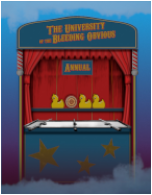

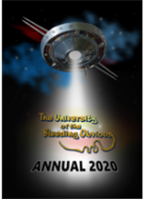
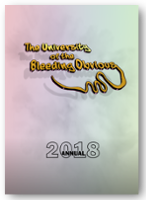
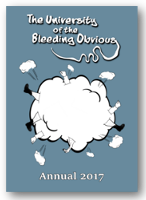

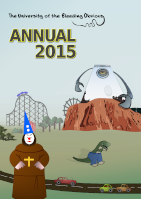


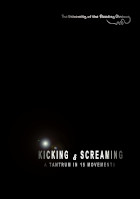
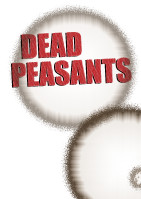








 Mars
Mars Sounds of Nature
Sounds of Nature Cathedral Root System Undermines Buildings
Cathedral Root System Undermines Buildings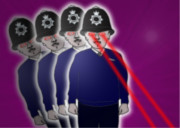 Special Powers
Special Powers Yeti Makeover
Yeti Makeover The Licepummeller
The Licepummeller Electrosausages
Electrosausages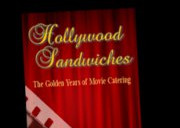 Hollywood Sandwiches
Hollywood Sandwiches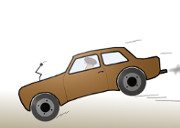 Getaway Driver
Getaway Driver Pop-Up Royals
Pop-Up Royals

